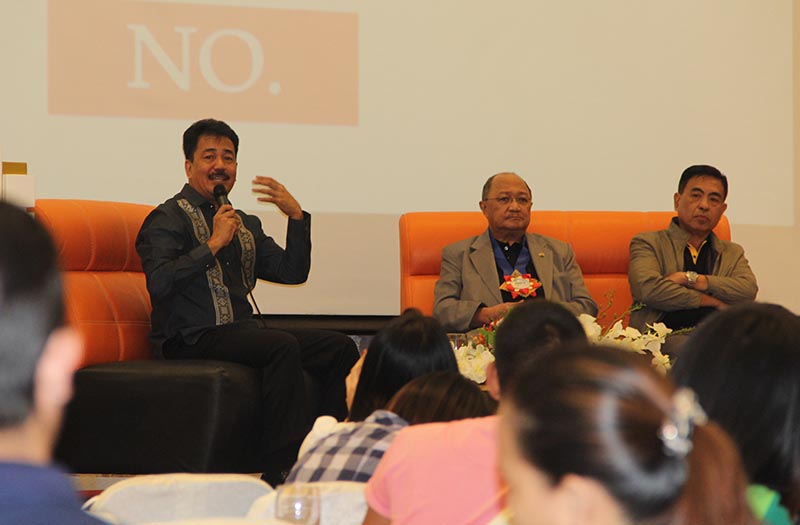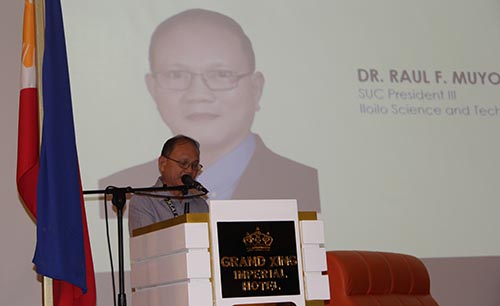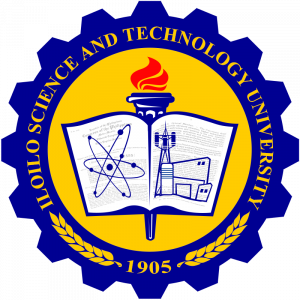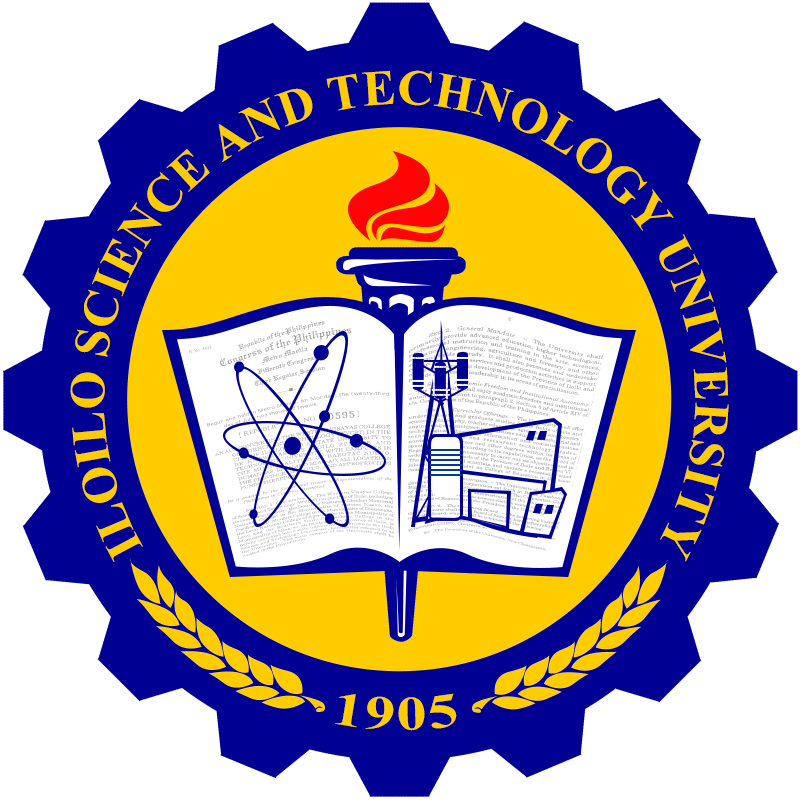
CHED Chair Dr. J. Prospero E. De Vera III, Consultative Commission on the review of the 1987 Constitution Commissioner Atty Antonio B. Arellano and CHED RO6 Officer-in-Charge Dr. Edilberto J. Orillos answer questions in the open forum.
“We are here this afternoon and we are targeting specifically the academic sector because you young people who will decide are the most skeptical voice if we’ll do change the constitution,” said Chairman J. Prospero E. De Vera III of the Commission on Higher Education (CHEd) as he starts discussing the impact of the federal government to higher education. Organized by the Consultative Committee to Review the 1987 Constitution and CHEd RO 6, the forum was held at Iloilo City on October 29, 2018.
De Vera emphasized that under the draft constitution the power on education will be shared by the federal and regional government. The regional government will be given power to make education more responsive to the local needs of the area. If given the mandate, regional governments could focus their materials (textbooks) on the local context of the region. He added that local government could also give more priority to the needs of the SUCs.
On the other hand, he mentioned some negative aspects of the system, “National standards will be lost if local is given exclusive rights. There will be also be disparities across nation-between the rich and the poor regional governments. There is also a tendency that ethnicity will be given more priority than nationality.”

Dr. Raul F. Muyong gives the opening remarks of the program.
In Malaysia, according to him, local governments do not have power over education, there are just implementing agencies. If that is done in the Philippines, other regions will not have priority, slow in decision-making and little resources will be allocated.
To maintain balance, it was proposed that the federal government will determine the quality standards, equivalencies and professional standards, science research and teaching, assessment of the performance of the educational system particularly on internationalization and policy direction. The accreditation of institutions for free tuition and financial assistance and loans of the students, recognition of safeguard institutions, open and distant learning, and recognition of foreign degrees were also included in the powers of the federal state. “Promotion of scientific of marine reserve and technological development including the promotion of other kind of research will be with federal government. State colleges do not have financial capacity and clout to invest in such substantial amount in science and technologies,” De Vera added.
Regional government, on the other hand, will have the power on governance and running of public institutions including research, libraries, archives, adult education, arts and culture, preservation of monuments, sports and youth welfare. Recognition and authorization of private higher education, admission policies, and administration were among the powers for the local government.

ISAT U faculty, staff and students join Dr. De Vera and Dr. Muyong for a photo op.
One of the crucial discussion was on the direction of the SUCs. De Vera said that the basic economic activity in the region will be highly considered in the changes in the educational system. Western Visayas is identified in agriculture, agroforestry and agro services. He clearly stated that, “we will now match the competencies of the state universities and the needs of the region. The local state and universities is to produce the manpower needed by the federal state. The program in connection to economic activities should be developed and put before other programs.”
Programs that are out in context on the economic activities will be affected, “yung mga programs na hindi naman kailangan ng federal state essentially, you start closing that out,” he advised. This is to safeguard cases of misdirection. “Example, the SUCs produces more teachers but the manpower needs of the region is more agriculture graduates. Cases that also leads to misdirected funding and government subsidy,” De Vera clarified.
University presidents, key officials, faculty, staff and students of the different state universities and colleges (SUCs), local universities and colleges (LUCs) and private higher educational institutions in Western Visayas attended the meeting.
The other speaker was Atty. Antonio B. Arellano, Commissioner of the Consultative Committee to Review the 1987 Constitution.










